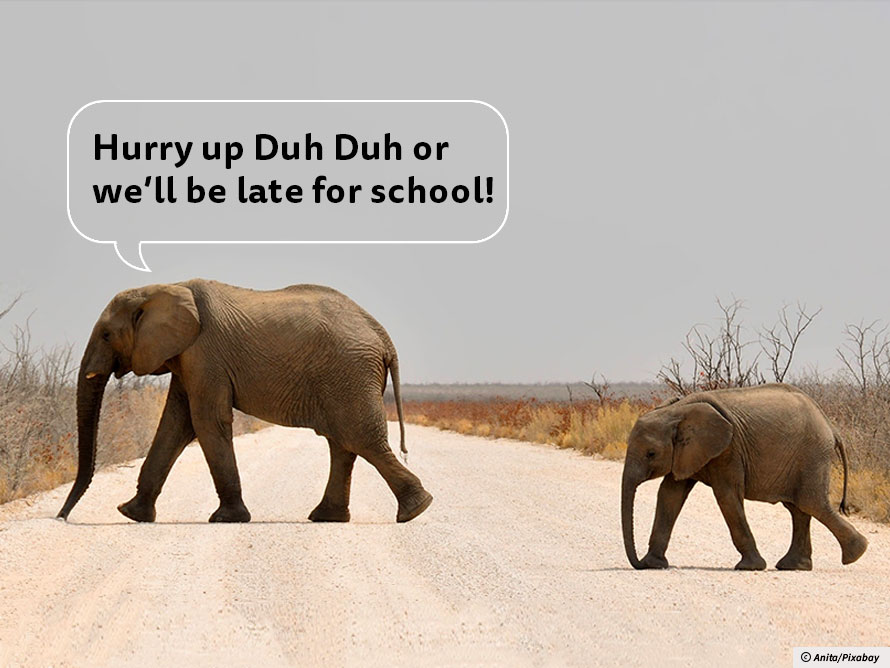Should they have human rights? Scientists have found that elephants have more in common with us than anyone imagined. The implications for our understanding of animals are huge.
Discovered! Elephants call each other by name
 Intelligence: Elephants may also have deep social bonds, complex thoughts, and a desire to connect with others.
Intelligence: Elephants may also have deep social bonds, complex thoughts, and a desire to connect with others. Glossary
Savannah - A large flat area covered with glass and occasional trees.
Colorado - A state in the west of the US that contains much of the Rocky Mountains.
AI - A computer programme that has been designed to think.
Kenya - A country in East Africa with a population of nearly 54 million people.
Seismic - Of enormous size or effect.
Algorithm - Any set of rules followed by a computer. In the context of social media, “the algorithm” refers to the intelligent AI that learns the interests of the user and presents them with posts that it thinks will interest them.
Autonomous - Having the freedom to control itself or its life.
Gallup - An American analytics company.
Empathy - The capacity to understand and feel the suffering of others.
Jeopardy - Danger.
